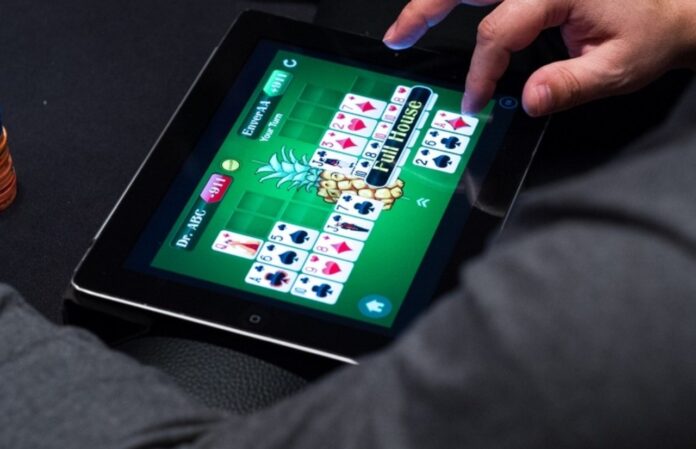In the ever-evolving landscape of gaming, the realm of poker has undergone a remarkable transformation with the advent of online platforms. This revolution has redefined how we perceive and engage with the game, making it more accessible, convenient, and globally connected than ever before. Let’s delve into the fascinating journey of online poker, exploring its rise, impact, and the exciting future it holds.
Rise of Online Poker Platforms
The rise of online poker platforms has been nothing short of a seismic shift in the gaming industry. What was once confined to smoky backrooms and glitzy casinos is now at our fingertips, accessible 24/7 through laptops and smartphones. This shift not only democratized the game but also gave birth to a new breed of players who could learn, practice, and compete from the comfort of their homes. The digital format opened the floodgates of possibilities, allowing novices and pros alike to partake in the game’s rich tapestry.

Accessibility and Convenience of Virtual Gameplay
The allure of online poker lie in its unparalleled accessibility and convenience. No longer bound by geographical limitations, players from Tokyo to Toronto can now gather around virtual tables, eliminating the need for travel and accommodation expenses. This global convergence not only enhances casual gameplay but also fuels the intense competition of poker tournaments. This dynamic has enriched the poker experience by introducing diverse playing styles and strategies, creating a vibrant melting pot of cultures and backgrounds, all united by their love for the game.
Global Player Base Transcends Geographical Boundaries
It has been a unifying force, transcending borders and fostering a global poker community. Players now interact with opponents from different continents, gaining insights into varied playing techniques and cultural nuances. This interconnectedness has not only broadened their horizons but also led to the formation of lasting friendships forged through a shared passion. The digital arena has transformed poker from a solitary pursuit to a communal endeavor, redefining the very essence of the game.
Economic Impact on Gaming Industry and Revenue Streams
The economic impact is a force to be reckoned with. The gaming industry, once centered around brick-and-mortar establishments, now thrives in the virtual realm. Online poker platforms generate substantial revenue through various channels, from rake fees to premium memberships. Additionally, this surge in popularity has led to a burgeoning poker economy, giving rise to professional players, coaches, content creators, and even specialized tools to enhance gameplay.

Technological Innovations Enhancing Online Poker Experience
Technological advancements have breathed new life into this experience. Cutting-edge algorithms ensure fair play and security, mitigating concerns about cheating. Moreover, user-friendly interfaces, realistic graphics, and immersive soundscapes replicate the thrill of live poker, transporting players to virtual casinos from their own homes. The integration of mobile apps further enables gaming on the go, making every spare moment an opportunity to refine one’s skills and engage in friendly rivalry.
Social Dynamics and Virtual Player Interactions
Contrary to the misconception that online gaming is isolating, this is a social affair. Virtual player interactions are a cornerstone of the experience, facilitated through chat features and interactive avatars. Players banter, celebrate victories, and commiserate losses, fostering a sense of camaraderie that mirrors real-world interactions. These connections dispel the notion that online gaming is devoid of human connection, highlighting the nuanced ways technology can bridge the gap between physical and virtual spaces.
Evolution of Competitive Strategies in Digital Poker
The shift to online platforms has ushered in an evolution of competitive strategies. With players no longer sitting across from each other, the traditional art of “reading” opponents takes on a new form. Instead of relying solely on physical cues, players must now analyze betting patterns, timing, and online behaviors to gain insight into their adversaries’ intentions. This strategic shift has elevated the mental prowess required to excel in the game, resulting in a dynamic and ever-evolving playing field.

Regulatory Challenges and Varying Legal Frameworks Worldwide
The global nature presents a complex web of regulatory challenges. Legal frameworks vary widely from one jurisdiction to another, impacting the availability and legality of these platforms. While some countries embrace it as a legitimate form of entertainment, others impose stringent restrictions or outright bans. Navigating this labyrinthine landscape requires a delicate balance between innovation, player protection, and adherence to local laws.
Psychological Aspects of Online Poker and Player Behavior
The digital realm introduces intriguing psychological dynamics to poker. The absence of physical cues prompts players to focus more on their opponents’ decisions and bet sizes, leading to heightened awareness and adaptability. Moreover, the anonymity of online play can embolden some players to take risks they might not in a live setting. Understanding these psychological nuances adds another layer of complexity to the game, requiring players to master not only the mechanics but also the minds of their adversaries.
E-sports Integration and Emergence of Online Poker Tournaments
The integration with the realm of e-sports has propelled the game to new heights. These tournaments, akin to e-sports competitions, gather thousands of participants vying for substantial prizes and coveted titles. Streaming platforms broadcast these tournaments, turning skilled players into celebrities and spectators into fans. This fusion of skill-based gameplay and entertainment mirrors the trajectory of e-sports, firmly establishing online poker as a spectator sport in its own right.

Future Trends: Virtual Reality and AI in Online Poker
As we peer into the future, two trends stand out: virtual reality (VR) and artificial intelligence (AI). VR technology promises to transport players into immersive, lifelike casino environments, bridging the gap between physical and virtual gaming. On the other hand, AI-driven tools offer insights into optimal strategies, enhancing both casual and professional gameplay. The convergence of these technologies holds the potential to revolutionize online poker, offering a more interactive and intelligent experience.
Conclusion
In conclusion, the online revolution has propelled poker into a new frontier, reshaping its landscape and impact on a global scale. The fusion of accessibility, technology, and community has democratized the game, creating a tapestry woven with diverse stories and strategies. As we navigate the ever-changing landscape of online poker, one thing is certain: the journey has just begun, and the future promises even more exciting developments that will redefine how we engage with this timeless game.









